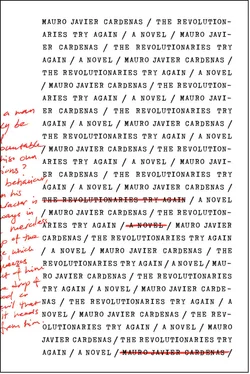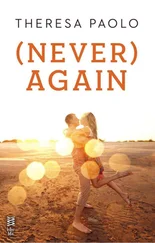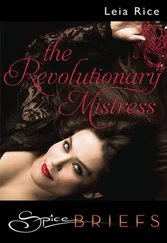My father did not touch his coconut flan. After Maria cleared the pig’s skeleton, he was still chewing on its hard skin, gnawing at it with such force that I could see his grimacing teeth like a dog’s.
With rushed signs of the cross we stood up and readied ourselves to leave. My father, sprawled on the sofa closest to the exit, examined us with feigned amusement, as if preparing to taunt us out of my grandmother’s house.
We had to start heading to Christmas Mass, and I, without much time left, had to start convincing my father to come with us. This was my only chance till next Christmas. For his government post my father had moved to Quito, and although I visited him during the summer, his lifestyle in the capital did not allow for much church talk. I know I wouldn’t have ventured my speech in front of my family (my grandmother would have asked me not to pester my father), and I know they wouldn’t have let me stay behind. In that brief space between the house and the garage, I must have told them I had forgotten my rosary or my bible. My grandmother must have given me her house keys because my father did not open the door. He had moved to the sofa farthest away from the door. He had crossed his legs like a professor about to lecture himself, but he had sunk the rest of his body inside the sofa. He was holding up his cigar backwards, with the burning end facing him, and he was staring at it as if inspecting a live snake or an alarm clock that should’ve gone off.
He noticed me and said qué, flaco, you’re not going to Mass?
He asked this without ridicule or annoyance. He asked this with sincere concern. I was sixteen at the time and steeped in love with our Madre Dolorosa. That year I had successfully avoided any impure thoughts that could have marred my love for Mary. I do not know why this was so. At San Javier, I used to advertise the daily rosary service my friend Leopoldo and I had founded and our classmates would ridicule us because they thought we were just brownnosers. But my father did not make fun of me. I do not know how he found out about my religious fervor (I didn’t tell anyone about my rosary prayers or my volunteer service because I was following the precept of not letting one hand know what the other hand was doing), but around me he tried to keep his disdain for religion to himself. I am not sure if I knew it then, or later, or if I had guessed it all along with that intuition that binds a son to the defeated aspirations of his father, but in his last year at San Javier my father had decided to give everything up and become a Jesuit priest.
I delivered my father no inspired speech. I stuttered and asked him to please come with us. Without grumbling an okay or an all right my father stood up. He nodded absently, walking toward me and then beside me like a surrendered fugitive. On the front seat of her car my grandmother, who was carrying the baby christ on her lap, silenced the Christmas carols with a careful turn of the stereo’s dial and contained her tears as if afraid the merest peep would change my father’s mind.
Nothing unusual happened during Mass. As always, we drove to the Iglesia Redonda, the round church with four entrances distributed equidistantly around its circular perimeter, and in between these entrances, rows and rows of arched benches facing the elevated altar on the temple’s epicenter. Following tradition, my grandmother placed our family’s baby christ on the altar’s steps, next to the other family effigies, but not without spending some time hogging the best spot and patrolling it until everyone sat down. Because we did not arrive early enough we seated ourselves as best we could. Parallel to the front of the altar, by the confession booth, far from the rest of the family, my father and I sat together. I must have felt triumphant. Or perhaps humble and grateful to the Virgin Mary for answering my prayers. Surely I felt compelled to concentrate on the Christmas sermon, ignoring the subdued elegance of the faithful and the perfumed smells of Ecuadorian women intent on becoming European damsels. The priest delivered his last blessings. The crowd that minutes before had been silent became festive, friends and families searching for each other in circles and laughing heartily upon finding one another. My father remained in his seat. I did not stand up either. By the front row, near my father and me, men in distinguished suits were walking up to my Uncle Fernando. They were grinning stupidly and shaking his hand with the same vigor they were using to chat him up, probably sending their best regards to the minister and joking that they had some deals they would like to discuss further. My father tried to avoid them. He stood up, covering his face by pretending he was wiping sweat off his forehead, but as he walked away someone next to my Uncle Fernando shouted out his name. My father stopped, hesitated, but then he turned and saluted the man by cracking a joke across the aisle. My father was a joker. Outside our family, everyone seemed to relish seeing him on the street or at restaurants. He would put people at ease simply by changing their name from Roberto to Roberticux or from Ernesto to Ernestinsky. I had seen him do this many times before, especially when I visited him. At first I would take the bus up the cordillera to Quito, but from the second summer on my father bought me a plane ticket as well as imported clothes and the expensive sneakers I had wanted to show off at school. One early Sunday evening, during my last summer there, my father said he wanted to show me where my Uncle Fernando worked. He said this with obvious pride, so instead of reminding him that Sunday nights were our chess nights, I went along with him. A huge slab of cement, darkened by mold on most of its windows’ edges, a sight that I was to see again many years later in the soviet buildings of Warsaw: this was the ministry of finance. My father and I entered the minister’s office without knocking. I had never seen so much lacquered wood or as many fur rugs inside an office. My father locked the door behind us. As we glided by, emboldened by my father’s knowledge that we were special guests, I could see our reflection on the thick edges of the bookcases lined with edicts and regulations. On the far end of the room, by the windows overseeing our capital, the minister, my Uncle Fernando, and a few others were already gathered by an oval table. The minister greeted my father with one jolly clap, then stood up and delivered a mock address: We are gathered here today. The minister placed a black leather briefcase on the table. He squinted and concentrated on aligning the briefcase’s three tiered code as if trying to open a safe, and after the gold fastenings popped and the minister rearranged the knot of his silver necktie, he began to serve us wads of cash as if giving away free money for a game of dice. Some of the men accompanied their cheers by playing with the rubber bands gripping their cash. I can still remember the sound of scrunched rubber against paper. We should all thank our chief of office supplies here, the minister said, although of course he should thank us. Someone poured champagne as if it were meant to be spilled, and later that night, at La Cueva, a traditional Spanish restaurant dug under a new downtown skyscraper, everyone swigged champagne and wine and whiskey. During dinner my father stood on his chair. Up there, his head almost touching the low brick ceiling, he removed his gray suit jacket with the minute violet stripes, placed it over his shoulders like a cape, and as he slurred his toast his tie dangled like a reptile and his splotched white dress shirt consumed the liquor overflowing from his glass. He flashed his wads of cash and said tonight, gentlemen, the women are on me. Everyone else at our table puffed their cigars. Clapped. The service had no choice but to celebrate us. My father patted me on the back, and since I did not readily smile he increased the force of his greeting. After downing half a glass of Chivas he thrust it toward me. This, it occurred to me as I sniffed his drink, is the kind of life my father leads. But I did not question my father about what type of deal he was celebrating. I knew that the answer would be unpleasant. I also knew that any questions might alter my father’s mood and ruin my chances of getting more expensive sneakers out of him. And so I ate and laughed and drank his stiff drinks and by night’s end I, too, must have been drunk.
Читать дальше












